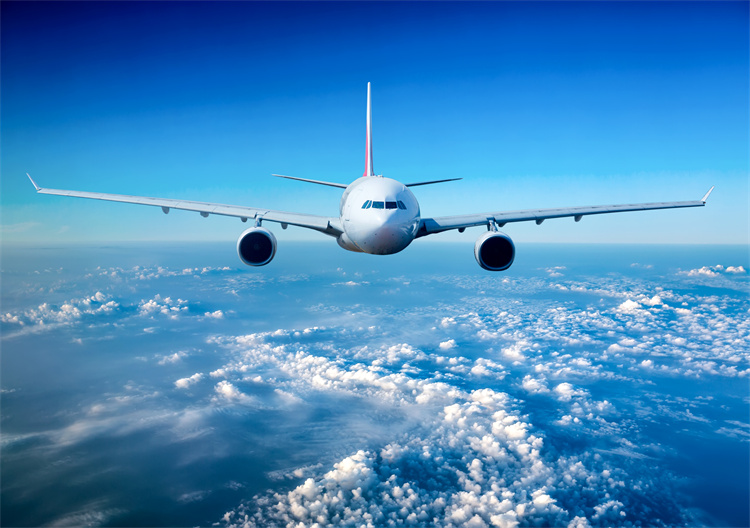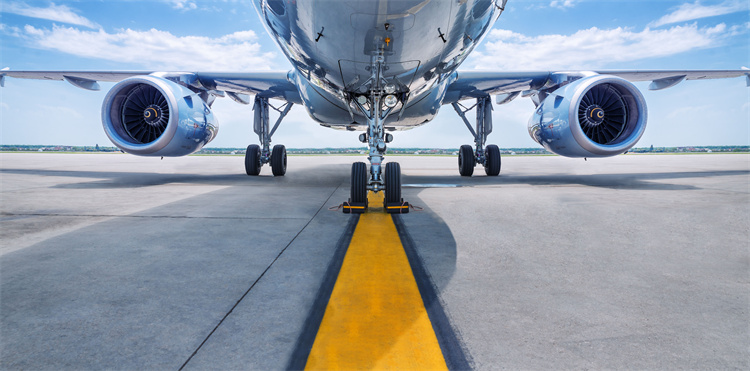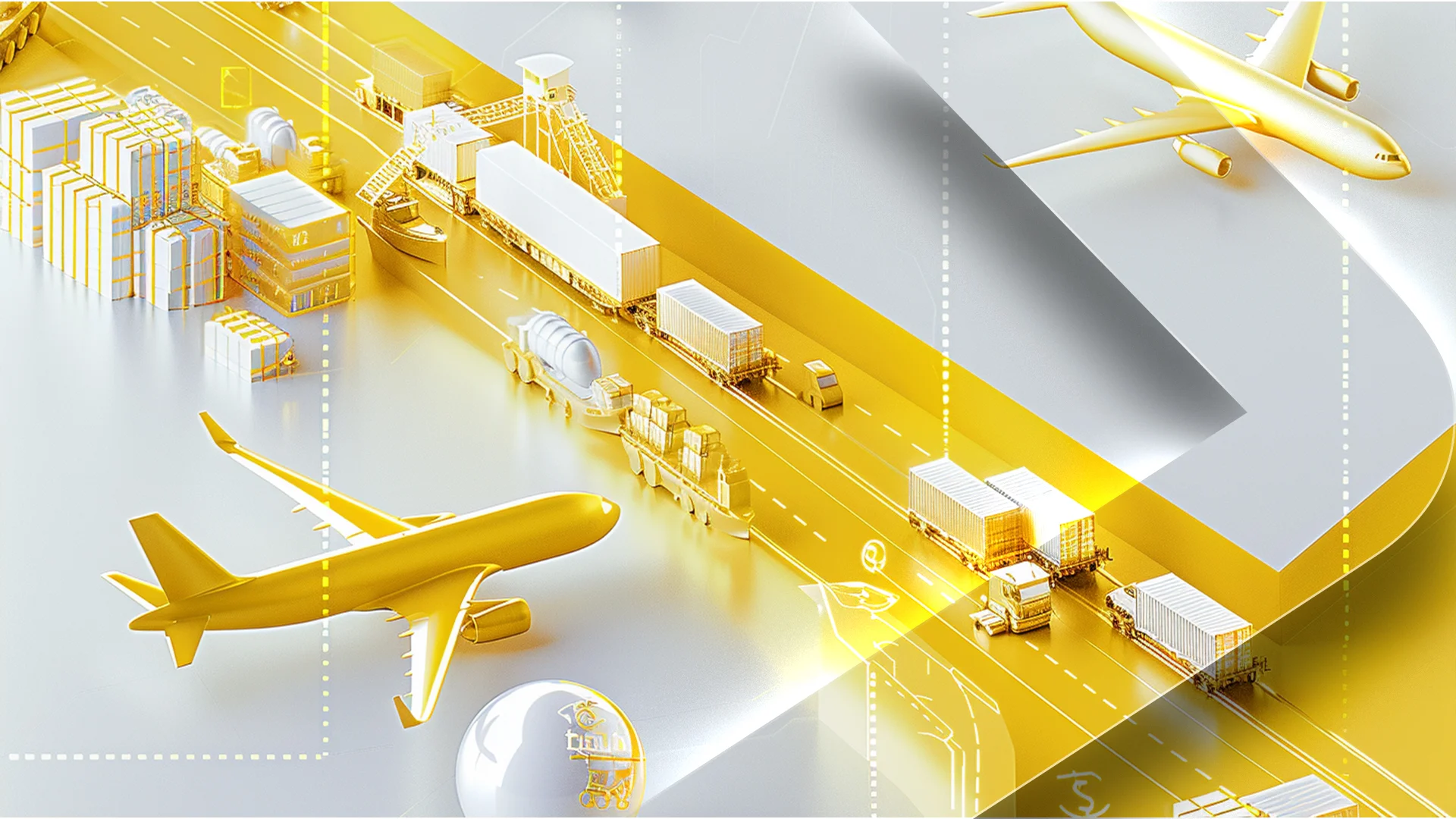Air Express Services See Rapid Expansion and Innovation in 2025

Air express services in 2025 are growing very fast. The global air express market may reach $372.47 billion. Cargo volumes are going up quickly. People want fast and reliable cargo delivery more than ever. This is because e-commerce is growing a lot. JUSDA is leading these changes. They use advanced cargo management and smart solutions all over the world.
Key Takeaways
Air express services are growing quickly because more people shop online and trade worldwide. Airlines are adding more space for cargo. They use smart ideas to meet what people need.
Technology like AI and automation helps airlines move cargo faster. It helps them save money. It also makes customers happier with real-time tracking and better service.
The industry has problems like supply chain risks, new rules, and worries about the environment. But new ideas and being flexible will help them do well in the future.
Air Express Services Growth

Market Expansion
Air express services are growing fast in 2025. More people want quick and reliable delivery. Airlines are adding more space for cargo. The global air cargo market was $303.2 billion in 2023. It could reach $495.11 billion by 2032. The CAGR is 5.6%. Asia Pacific had the biggest share in 2023 with 45.8%. North America and Europe follow behind. The air cargo industry grows from strong trade and new technology.
The table below shows important trends and growth for air express services in 2025:
Aspect | Details |
|---|---|
Express Segment Growth | Fastest growth rate, fueled by e-commerce and rapid delivery demand |
Domestic Air Freight | Highest CAGR, supported by strong domestic trade and logistics networks |
International Air Freight | Significant growth from global trade and supply chain development |
Leading Regions | Asia Pacific, North America, Europe |
Key Industries | Manufacturing, retail, pharmaceuticals |
Private Segment Growth | High CAGR due to demand for expedited shipping of high-value goods |
Technological Drivers | Real-time tracking, logistics management improvements |
Regional Trade Agreements | USMCA, RCEP facilitating smoother air freight operations |
Market Challenges | Last-mile delivery, environmental concerns addressed by EVs and hybrid vehicles |
More companies use airlines to ship goods quickly. The air cargo market has some problems. Last-mile delivery and the environment are big issues. Electric vehicles and new city delivery ideas help fix these problems.
E-Commerce Impact
E-commerce is the main reason air express services are growing. Online shopping needs fast shipping. Airlines now save more space for e-commerce packages. Cross-border e-commerce is rising fast. About 80% of these packages go by air. This is 20% of all air cargo. Big e-commerce companies in Asia, like Alibaba and Flipkart, are growing their delivery networks.
Customers want their orders in 72 hours, even from other countries. This need for speed makes the air cargo industry work faster and better. Real-time tracking and digital updates are now normal. The air cargo market helps B2B, B2C, and C2C deals. B2B is about 75% of e-commerce shipments by value. Express deliveries are faster and make people buy again more often than standard shipping.
Note: E-commerce keeps growing, so the air cargo market must keep up to stay ahead.
JUSDA’s Global Reach
JUSDA is a top company in the global air cargo market. They have a strong network around the world. This helps them deliver products everywhere. JUSDA uses AI tools to guess demand, fix things before they break, and plan better routes. These tools save money and time. JUSDA moved to cloud computing. This gives them real-time data and more flexibility.
JUSDA grew in Europe and Southeast Asia. They offer different ways to move goods and digital tracking tools. The Vietnam-Europe Rail+ Solution cuts travel time by half compared to sea freight. It also lowers air freight costs by 10%. JUSDA cares about the environment. They use carbon-neutral warehouses and electric vehicles to help the planet.
JUSDA was named a “2025 Outstanding Cross-Border Service Provider.” This shows they are experts in air cargo. JUSDA goes to global logistics events and works on digital innovation. This makes them a key player in the future of air express services.
Innovation and Technology

AI and Automation
Airlines in 2025 use new technology to move cargo faster and safer. Automation and artificial intelligence help airlines sort, load, and deliver cargo with great care. At Bengaluru Airport, DHL Express built a big automated service center. The center uses telescopic conveyors and wheel sorters. These machines do most of the work and make cargo move faster. The center helps move more electronics, pharmaceuticals, and automotive freight.
Aspect | Details |
|---|---|
Facility Size | 17,900 sq ft automated center; 130,000+ sq ft total footprint |
Automation Tech | Telescopic conveyors, wheel sorters, sequence-based workflow logic |
Benefits | Faster processing, less manual work, higher shipment throughput |
Market Impact | Supports SMEs and exporters in key industries |
Airlines are also buying autonomous aircraft and eVTOLs. These vehicles can deliver cargo faster and make less noise. Companies like Lilium and Archer Aviation are testing eVTOLs for business use. Boeing and Airbus are making planes that can fly, taxi, and land by themselves. AI helps airlines spot equipment problems, plan better routes, and use less fuel. AI flight simulators help pilots train and stay safe.
AI and automation change how airlines handle cargo. AI looks at old data to guess what people will need. This helps airlines plan and not waste supplies. AI also finds the best paths for cargo, saving time and fuel. In warehouses, robots sort and move cargo all day and night. This cuts labor costs and makes delivery faster. AI-powered customer service, like chatbots, gives quick help and order updates.
Airlines using AI and automation work much better. For example, PostNord used AI to cut truck driving distance by 5-10%. Swiss International Air Lines saved $5.4 million by using less fuel. Lufthansa made wind forecasts 40% better, so there were fewer delays and cancellations.
JusLink’s AI Solution
JUSDA is a leader in smart cargo management with its JusLink AI Solution. This platform uses AI to study cargo trends, guess freight rates, and predict sales needs. JusLink helps airlines and shippers make good choices and react fast to market changes. The system has a risk control tower for real-time checks and an assistant called JusElsa. JusElsa uses natural language processing to answer questions and help with jobs.
JusLink’s AI Solution brings real results. Sharp, a global home appliance maker, had trouble with cargo and freight. After working with JUSDA, Sharp used JusLink to fix its supply chain. The company lowered logistics costs by 20% and labor costs by 70%. Order delivery times got 30% faster. JusLink’s AI helped Sharp manage inventory, plan shipments, and track cargo in real time. The platform also did freight math and made warehouse work better.
JusLink’s features include:
Supply chain trend analysis for better cargo planning
Freight rate prediction to control costs
Sales demand forecasting to avoid overstock or shortages
Automated replenishment strategies
Real-time risk alerts for cargo disruptions
AI-powered assistant for easy information access
These tools help airlines and shippers move cargo better and react fast to changes in demand.
Enhanced Customer Experience
Technology makes air express services better for customers. Airlines use AI to give real-time cargo tracking and quick updates. Automated systems make things faster and cut down on mistakes. Customers get their cargo sooner and with fewer problems. For example, Air India Express uses AI-powered marketing to send special updates and tips. This helped the airline earn more money and keep more customers.
Airlines also use digital platforms to talk with customers. Electronic bag tags and connected systems let people track cargo from start to finish. Contact centers and 24/7 support help fix problems fast. Automated baggage tracing and flexible services keep things running well during busy times.
Key Factor / Criterion | Impact on Customer Satisfaction |
|---|---|
Time | |
Administrative processing time | Shorter processing means quicker cargo release |
Accuracy | Integrated platforms reduce mistakes |
Safety | Better tracking improves cargo safety |
Rapid turnover | Faster processing boosts loyalty |
Airlines that use technology have happier customers. People like fast delivery, good tracking, and clear updates. These changes build trust and make customers want to use the service again.
Challenges and Outlook
Supply Chain Risks
The air express industry has many risks that can slow cargo and make service less reliable.
Economic problems can cause big airlines like Amazon and DHL to fly less. This lowers air cargo demand and slows growth.
Fights between countries, like the Ukraine conflict, can stop cargo and make airlines change their flight paths.
Worker strikes, like pay fights in Germany, can close airports and stop cargo from moving.
Digitalization is hard for some companies. They struggle to use electronic air waybills and keep safety data online. This makes shipments take longer.
Bad weather, like wildfires, droughts, and floods, can delay shipments and make it harder to move special cargo.
Air cargo spot rates can change a lot. This makes it hard for shippers and carriers to plan.
Experts say companies should buy from more suppliers, keep extra inventory, and be ready to change plans fast.
Regulatory and Geopolitical Factors
New rules in 2025 say all cargo must be checked and workers need stronger background checks. Airlines must follow new chain-of-custody rules and get more audits. If they do not follow the rules, they can get fines or have shipments delayed or stopped. Companies spend money on smart security tools and train workers to follow the rules. Wars, like those in Ukraine and Gaza, close airspace and make airlines fly different routes. These changes make it cost more to run flights, slow down deliveries, and limit how much cargo can move. Airlines try new routes and use technology to handle these problems.
Future of Air Express Services
The future of air express services has good things and some worries.
Automation, artificial intelligence, and real-time tracking will help move cargo faster and make customers happier.
More people shopping online and bigger supply chains will make air cargo busier and need more space.
Drones and better tracking will help move cargo in new ways, especially in cities.
Higher fuel prices, tough rules, and strong competition can make it hard to make money and keep service good.
Big storms and world events can stop cargo and mean companies must be ready to change plans quickly.
People in the industry need to keep making new ideas and stay strong to meet new needs and keep up with changes.

SMART JusLink
Supply Chain Management Solution
Air express services are growing fast in 2025. Airlines are adding more space for cargo. They are also using more digital tools. JUSDA brings new ideas like Vendor Managed Inventory. They work with important partners to help customers save money and move cargo better.
“Tier 2 and tier 3 cities are becoming popular places for cargo. There is a lot of room for cargo to grow in these cities.”
Putting more money into technology will change how global cargo moves in the future.
See Also
Discover The Latest Developments In Sea Freight Logistics
How Artificial Intelligence Is Transforming Supply Chain Operations
Top Five Trends Shaping The Future Of Supply Chains
Innovative AI Solutions Driving Efficiency In Supply Chains
Preparing For The Newest Transport Technologies In Supply Chains
